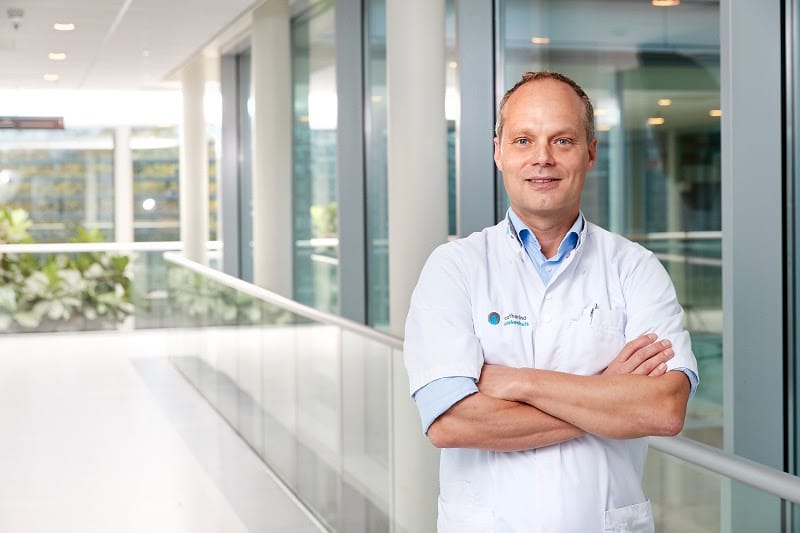Care for pancreatic cancer patients has greatly improved in recent years. The introduction of regional hospital networks has increased the likelihood of a potentially curative surgery for every patient diagnosed with pancreatic cancer.
Care improved
“So regardless of whether a patient is diagnosed with pancreatic cancer in an expertise center or in a regular hospital,” explains oncology surgeon Prof. Ignace de Hingh of the Catharina Hospital in Eindhoven. Together with colleagues from the Amsterdam UMC and the Integrated Cancer Center Netherlands (IKNL), he recently conducted research into the referral patterns and treatment of more than 10,000 patients with pancreatic cancer and found that care has improved. The results have been published in the leading medical journal The British Journal of Surgery.
Fifteen years ago, research showed that the risk of death after surgery for pancreatic cancer in the Netherlands was too high. The complex operations were done in too many hospitals in the Netherlands. Result: surgeons had little experience with the operation and the treatment of complications, resulting in excessive mortality.
Hands together
A few years ago, a group of medical specialists joined forces to structurally improve care for patients with pancreatic cancer in the Netherlands through continuous quality monitoring and scientific research. This takes place under the banner of the DPCG, Dutch Pancreatic Cancer Group.
Mortality too high
That led to centralization. Pancreatic cancer patients were only allowed to undergo surgery in hospitals that performed at least 20 of these operations per year. “This approach paid off,” says De Hingh. “Research – conducted at Catharina Hospital in collaboration with IKNL – showed that the chance of death as a result of the operation decreased sharply afterwards.”
Good news for the patients with pancreatic cancer. But there was an unexpected negative side effect. “With the disappearance of knowledge of operative treatment in many hospitals, the chances of a patient diagnosed with pancreatic cancer in such a hospital also decreased. With that, some patients seemed to eventually miss the chance of a potentially curative operation. Especially patients from a lower social background were the victims. ”
Regional networking
This outcome has partly led to regional networking. “This means that hospitals that do not perform pancreatic cancer surgery can still join the discussion of their patients in the hospital in the region that does perform that surgery. This usually takes place through a video meeting, attended by all hospitals involved.
In this way, every patient with pancreatic cancer, regardless of the expertise of the hospital where the diagnosis was made, is assessed by experts in the field. In this way all patients are assured of the best treatment ”, concludes De Hingh. In the meantime, this method is used in almost all of the Netherlands.
Improve healing rate
In 2019, 2,569 patients were diagnosed with pancreatic cancer. Due to the lack of complaints, this form of cancer is often discovered late and the chance of a cure is not great. The DPCG is committed to improving this percentage through intensive collaboration, monitoring and research.
Photo: Prof. Ignace de Hingh / Catharina Hospital
Source: Catharina Ziekenhuiis
–


